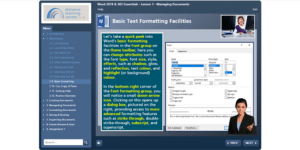Network Engineer
Network Engineers are in high demand across industries, serving as essential players in organizations of all sizes. From large corporations to small consultancies, these skilled professionals are vital for maintaining digital networks that power businesses today.
As businesses continue to embrace digital technologies to enhance productivity, Network Engineers play a crucial role in ensuring smooth operations. Whether it’s managing a network of hotels to optimize booking systems and Wi-Fi access or working on large infrastructure projects to deliver reliable network services, these experts guarantee the success of critical operations.
In the fast-paced world of communications, Network Engineers are the backbone of global networks. They adapt and evolve with cutting-edge technologies, delivering top-notch experiences to customers and overseeing nationwide networks.

With the rise of technologies like 5G and Cloud, the demand for experts who can manage, build, and maintain virtual and physical networks is skyrocketing. Network Engineers install computer networks, provide technical support, and ensure systems operate at peak performance to meet organizational objectives.
Handling both hardware and software issues, Network Engineers are masters at troubleshooting network failures. Their swift problem-solving abilities minimize downtime and keep services running smoothly. They serve as a bridge between technical and non-technical customers, guiding them through network installations and offering ongoing support.
Whether customer-facing or internal, Network Engineers collaborate with various stakeholders, from management and team members to clients, customers, and suppliers. They utilize a range of communication technologies to interact effectively, both in-person and remotely. Working as part of a team or independently, they understand their organizational role and escalation processes.
While office-based, Network Engineers may also need to travel between sites depending on the organization’s size and network. As consultants, they may spend substantial time at clients’ offices or on large installations, occasionally requiring time away from their home base.
If you’re seeking a rewarding career at the forefront of technology, look no further than becoming a Network Engineer. Join a profession that unlocks opportunities in diverse industries, as organizations increasingly rely on their digital networks to thrive.
What will I learn?
Knowledge
- The causes and consequences of network and IT infrastructure failures
- The architecture of typical IT systems, including hardware, OS, server, virtualisation, voice, cloud and applications
- The techniques for systems performance and optimisation
- Diagnostic techniques and tools to interrogate and gather information regarding systems performance
- Organizational procedures to deal with recording information effectively and in line with protocols
- Service Level Agreements (SLAs) and their application to delivering network engineering activities in line with contractual obligations and customer service
- Their role in Business Continuity and Disaster Recovery
- The purposes and uses of ports and protocols
- Devices, applications, protocols and services at their appropriate OSI and, or, TCP or IP layers
- The concepts and characteristics of routing and switching
- The characteristics of network topologies, types and technologies
- Wireless technologies and configurations
- Cloud concepts and their purposes
- Functions of network services
- The different types of network maintenance
- How current legislation relates to or impacts occupation
- Troubleshooting methodologies for network and IT infrastructure
- How to integrate a server into a network
- The types of security threats to networks and IT infrastructure assets
- How to use tools to automate network tasks
- Approaches to change management
Skills
- Apply the appropriate tools and techniques when securely operating and testing networks
- Install and configure the elements required to maintain and manage a secure network
- Implement techniques to monitor and record systems performance in line with defined specifications
- Maintain security and performance of the system against known and standard threats
- Apply the appropriate tools and techniques to identify systems performance issues
- Apply the appropriate tools and techniques to gather information to troubleshoot issues and isolate, repair or escalate faults
- Communicate outcomes of tasks and record in line with organisational procedures and SLAs including adherence to customer service standards
- Upgrade, apply and test components to systems configurations ensuring that the system meets the organisation’s requirements and minimises downtime. This should include backup processes
- Record task details whether face-to-face, remote or in writing in line with organisational requirements
- Interpret information received from a manager, customer or technical specialist and accurately implement the defined requirements
- Monitor, identify and implement required maintenance procedures
- Implement techniques to optimise systems performance in line with defined specifications
- Organise and prioritise clients or stakeholders’ requests in line with SLAs and organization processes
- Explain their job role within the business context to stakeholders to enable a clear understanding on both sides of what their remit is and convey technical constraints in appropriate language considering accessibility and diversity implications
- Operate securely and apply the appropriate process, policies and legislation within their business responsibilities
- Communicate with a range of stakeholders taking into consideration the organisations cultural awareness and technical ability
- Apply the appropriate level of responsibility when planning and prioritising work tasks
- Apply the relevant numerical skills (Binary, dotted decimal notation) required to meet the defined specifications
- Ensure compliance of network engineering outputs with change management processes
- Select the appropriate tools and comply with organisation policies and processes when upgrading systems
Behaviours
- Work independently and demonstrate initiative being resourceful when faced with a problem and taking responsibility for solving problems within their own remit
- Work securely within the business
- Work within the goals, vision and values of the organisation
- Take a wider view of the strategic objectives of the tasks or projects they are working on including the implications for accessibility by users and diversity
- Works to meet or exceed customers’ requirements and expectations
- Identifies issues quickly, investigates and solves complex problems and applies appropriate solutions. Ensures the true root cause of any problem is found and a solution is identified which prevents recurrence
- Committed to continued professional development in order to ensure growth in professional skill and knowledge
- Work effectively under pressure showing resilience
Key Info
Duration
This apprenticeship will typically take 30-33 months to complete.
Level
This apprenticeship standard is at Level 4.
Qualifications
Where an apprentice has not already achieved Level 2 English and Maths, they must do so before taking the end-point assessment.
Professional Recognition
This standard aligns with the following professional recognition:
- BCS, The Chartered Institute for IT for Register of IT Technicians (RITTech) level 4
Training Provider
Receive top-notch training from one of our handpicked providers in our trusted network.
Allow us to handle the seamless connection between you and a training provider who will expertly guide you and your employer through your personalised training journey. With their support, you will elevate your skills and excel in your role.
Enquire now to start your learning journey
[fluentform id=”30″]





















